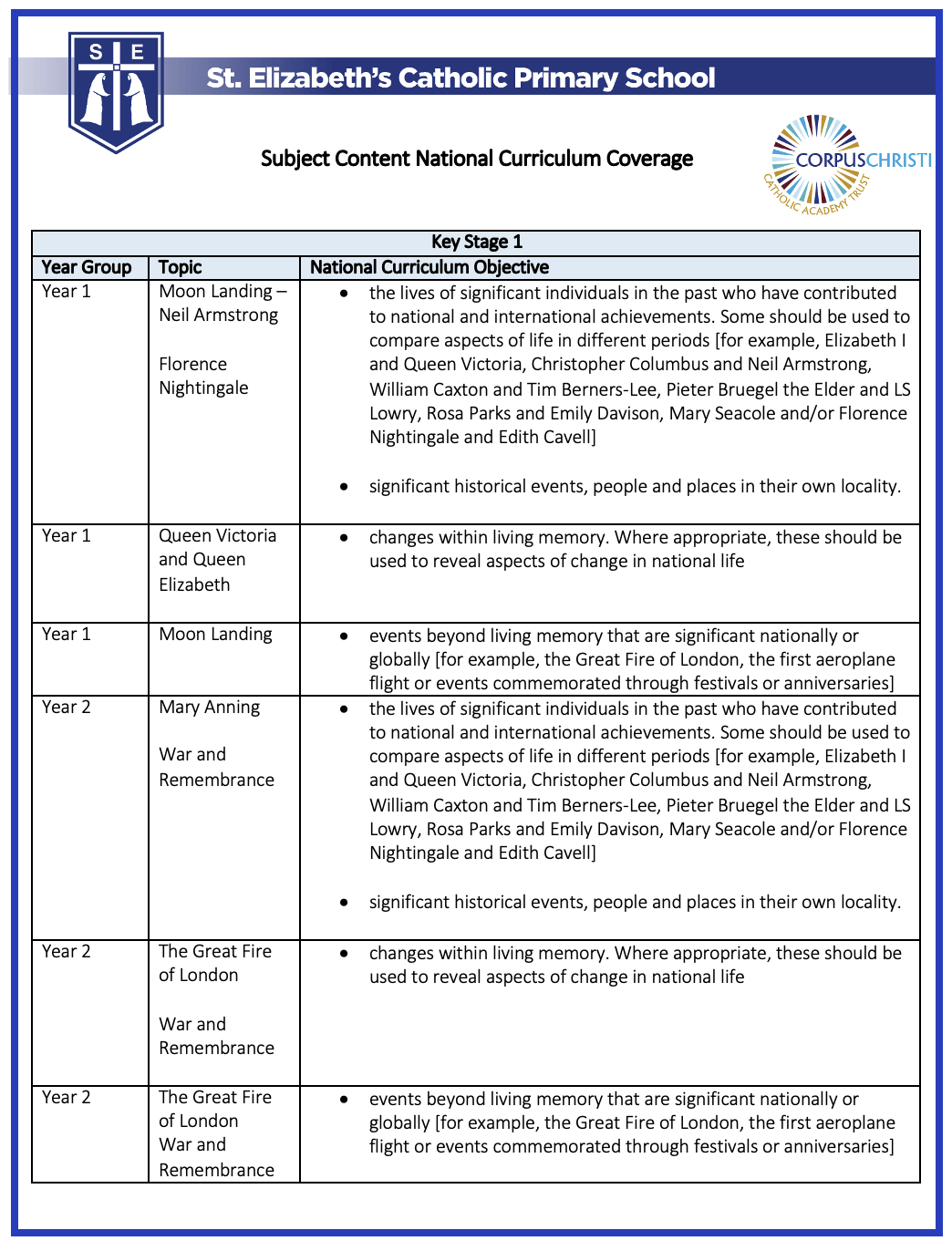History
Why is History important?
History is important because it helps pupils to understand and interpret the past, and therefore, the present. Through history, pupils develop a deeper cross-cultural awareness and understanding of their own and others’ heritage, through looking at evidence and asking and answering questions. In History, we can analyse successes and failures, which, in turn, teaches us to learn from our mistakes.
When is History taught?
The Whole School Overview below maps out when each History unit is taught:
How is the Subject Content from the National Curriculum Covered?
Subject Content National Curriculum Coverage
Key Stage 1
Subject Content National Curriculum Coverage
Key Stage 2


















